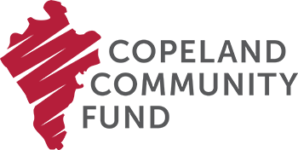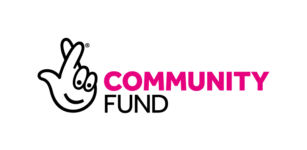Support for Children
Children make up one third of our populations but are 100% of our future. It is so important that the adults in families struggling with domestic abuse receive professional intervention in the form of advice, counselling and support.
Breaking out of the cycle of violence will influence future generations. Children who feel safe become happier, they are able to attain better in school, and they are equipped to stay free from harm in their own future relationships.
We work with children who are the victims and/or witnesses of abuse to help them understand that they are not to blame. We help them to replace the negative emotional and physical behaviours resulting from the trauma with those that are healthy and positive, and that enhance their well-being.
Group support
Our professional support group for children is facilitated by qualified therapists and trainers and runs every week. Please complete our child referral form to access this support.
1-1 counselling
We also provide a confidential counselling service, which is one-to-one and by appointment with one of our qualified therapists and trainer. Please complete our referral form to access this support.
FAQ’s for Children
Grown-ups use domestic abuse to control another person. If someone in your family is abusive, remember that you are not alone and that it isn’t your fault. You have the right to feel safe. Here are staying safe, getting help and how to deal with feeling sad or angry.
What is domestic abuse?
Domestic abuse is when one grown-up hurts or bullies another grown-up who is or was their partner, or who is in the same family. Domestic abuse can happen between people who are boyfriend and girlfriend or who are married.
When does domestic abuse happen?
It can happen when people live together as well as in different houses. Usually (but not always) it is the man who hurts the woman. Although domestic abuse happens between grown-ups, children can be affected by the abuse that they see and hear. Children can also be hurt or bullied as part of domestic abuse.
Are there different types of abuse?
Yes. Abuse can be physical (hitting or kicking), emotional (saying things that make someone feel bad about themselves or frighten them), sexual (forcing someone to do something sexual when they don’t want to do it), or financial (stopping someone from getting a job or even taking money away from the other person).
How do I know if it is happening in my family?
There are some signs that things aren’t quite right. If there are always arguments and fights in your family, if one person in your family hurts another, if you don’t feel safe at home, if you don’t trust some people in your family not to hurt you, if you often feel scared at home, or if you get upset because people call each other names or one person make the other feel bad.
Can I do anything to stop the abuse?
The first thing is to tell someone what’s happening. You might be able to talk to the person who is being hurt or you could try talking to a teacher, a neighbour, a friend, or a friend’s parent. You won’t get into trouble for telling someone. There are also helplines that you can call and they will be able to help you.
If there is a fight, should I stop it?
It’s really important that you stay safe when there’s a fight. Sometimes you might feel like you have to protect the parent who’s being hurt. This can be very dangerous and puts you at risk of getting hurt yourself. If you call 999 and ask for the police they will come to your house at any time of day.
Who can help my family?
We can help the adult who is getting hurt or being abused at home. We can help the person who is hurting or frightening others in your family to stop. And we can help you. You can ask an adult, a teacher or a friend to help you to fill in the form here:
Why don’t they just leave?
You might feel confused by what’s happening and the person being abused might do too. There are lots of reasons why the adult might be staying. Maybe they don’t know where else to go. They may still love their partner or they might be hoping that their abuser will change or stop. They may not want to move children away from the other parent. It might be that they do not have enough money leave, or they may not have enough strength to leave. Don’t be afraid to ask questions about what’s going on.
What if I just run away?
Running away can be dangerous. It’s not always easy to find somewhere safe to stay away from home. The best thing is to try and get help while you are at home. Call Childline (0800 1111) or talk to someone you trust. You can also ask an adult, a teacher or a friend to help you to fill in our form here and we can try to help:
Complete our adult self-referral form >
Complete our form to also refer your children >
If you have already run away, call 0808 800 70 70, which is the 24-hour Runaway Helpline. You won’t get into trouble but they will make sure you are safe.
Top tips for feeling better
Here are some tips from The Hideout (a charity that helps children and young people just like you)
Next time you feel angry or sad, or another way that you don’t like, try to do something positive like:
Do:
- Take a deep breath and count to ten
- Talk to someone about your worries
- Find an empty space (a field, an empty room) and shout as loudly as you can
- Write down how you are feeling, maybe in a diary
- If you’re upset with someone, you can write them a letter – you don’t have to give it to them if you don’t want to
- Draw a picture
- Make a list of things that make you happy
- Dress up like your favourite super hero
- Cry
- Play a game
- Build a den
- Do some sport or exercise
- Sing or dance to your favourite tunes
- Take a walk
- Bake a cake
- Read a book
- Hang out with a friend
- Phone or text a friend
Don’t:
- Take drugs
- Drink alcohol
- Stop eating
- Binge eat
- Harm yourself
- Skip school
- Run away
- Destroy property/things
- Take out your feelings on others by being violence or abusive
You might think these things will make you feel better. They might help shut out your feelings for a while, but they won’t solve the problem and will probably make you feel even worse. You could also hurt yourself or someone else.
If you feel really bad, talk to someone you trust who can get you help.










